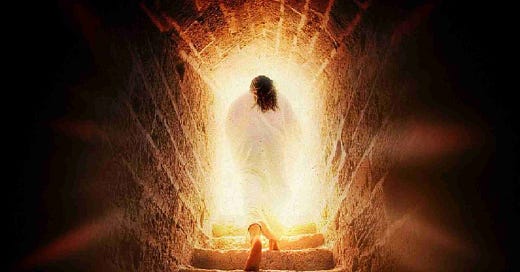Throughout the Lenten and Easter season, Bless All Times will feature longer reflections on each of the Fruits of the Spirit, looking at how they can be consciously developed and applied to ourselves, to our place in the world, and to others.
“God has not called me to be successful; He has called me to be faithful.”
― Teresa of Calcutta
Some people only attend church at Easter or Christmas, and others go on a more regular basis. But that is not a definition of, or commentary on, faithfulness.
St. Paul included it as one of the Fruits of the Spirit, and one might think the choice supremely obvious. If you want to live a good and purposeful life, faithfulness is key. How else to account for steadfastness, consistency, loyalty and obedience?
Like many things “religious”, faithfulness has been shrunk to retrofit a series of line items that exist to not only confirm, but sum up, the nature of our relationship with God. Do we go to church on Sunday? Tick. Do we donate our time and money? Tick. Do we, more or less, follow the Ten Commandments and try our best not to steal, cheat or lie? Tick Tick Tick.
It reminds me of the Lenten practice, of “giving something up” such as coffee or TV, instead of seeing it as an opportunity to “take something on”, like more patience or empathy. The saddest part of defining faith as a series of things to do is that it can overlook the importance of all the things we should be. How many times have we met people who are steady-as-a-rock churchgoers and yet whose behaviour is rigid and exclusionary? Or, most dramatically, live an entirely different life outside the precincts of the parish?
These days, faithfulness seems to be a pejorative. Or an adjective tinged with pity. “She’s so faithful visiting her husband. He doesn’t even remember who she is.” Or “He’s been faithfully working the deli counter for thirty years.” It’s as if we see limited value in commitments like that.
Easter is the ultimate answer to a life of faithfulness. Jesus was faithful from the get-go, and though the Gospels always make me want to know more about Him, they do tell us that His road back to heaven was not easy. He was born into a working family in a small and insignificant place. He lived much of His life without mention. For the last three years of it, He stayed pretty close to home, made friends, found followers, taught and healed, and as a result, attracted the attention of the authorities – both local and in the occupying empire. We know He experienced frustration, exhaustion and anger. And we know He felt fear. He kept going. That is faithfulness.
We think of Easter as something that happened to Jesus, but Easter happens to us too. He said as much. Our salvation is the fruit of His faithfulness, even though it cost Him.
Faithfulness is humility wrapped in purpose. It may look to others as pointless. Why aren’t we running after the next big shiny thing? Why keep going for seemingly so little return? It may take from us peace of mind and time. But the abiding image of Easter is the empty tomb. That tomb is empty for us also – if only we stay faithful.





A beautiful and faithful piece? Tick.